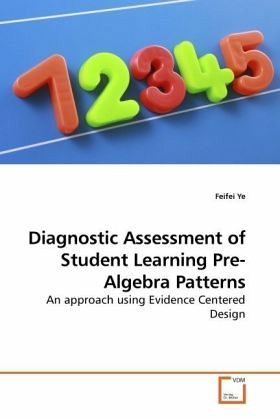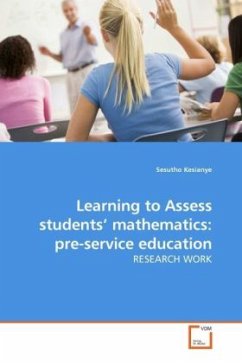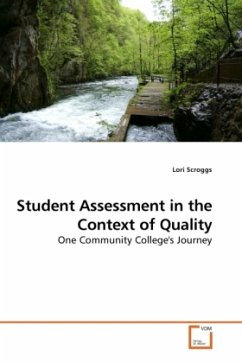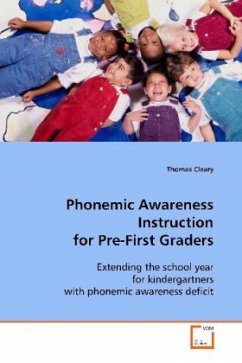
Diagnostic Assessment of Student Learning Pre-Algebra Patterns
An approach using Evidence Centered Design
Versandkostenfrei!
Versandfertig in 6-10 Tagen
52,99 €
inkl. MwSt.

PAYBACK Punkte
26 °P sammeln!
As a route into algebra, patterns are emphasized in the middle school curriculum as an approach to algebra and provide transition for students from arithmetic thinking into algebraic thinking. Diagnostic assessment of student learning of patterns is helpful to the understanding of student abilities with solving pattern problems, and to teacher instruction and student learning. In a social-cognitive context, diagnostic assessment in the classroom context is an assessment event related to student motivation, task values, self-efficacy, and efforts. Understanding the role of classroom assessment ...
As a route into algebra, patterns are emphasized in the middle school curriculum as an approach to algebra and provide transition for students from arithmetic thinking into algebraic thinking. Diagnostic assessment of student learning of patterns is helpful to the understanding of student abilities with solving pattern problems, and to teacher instruction and student learning. In a social-cognitive context, diagnostic assessment in the classroom context is an assessment event related to student motivation, task values, self-efficacy, and efforts. Understanding the role of classroom assessment in student motivation and achievement is important to teachers and students. In the framework of Evidence Centered Design, this study developed three sets of assessment tasks to diagnose student learning of numeric patterns in a 9-week instruction period of patterns and functions in 8th grade math classes in an urban school district. Further, it depicted classroom assessment related beliefs and behaviors including self-efficacy, task value, achievement goal orientations, effort, and learning strategies across the three assessment events.












